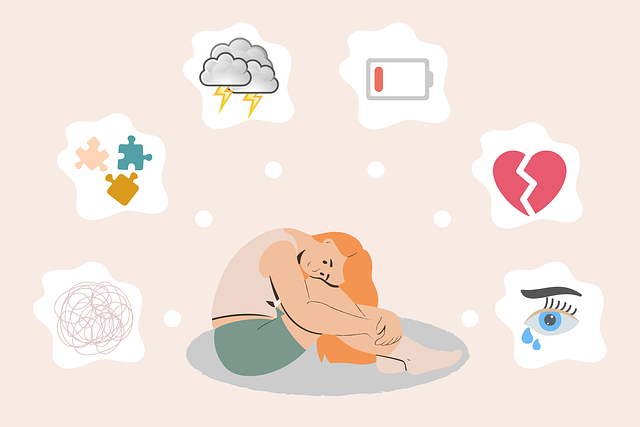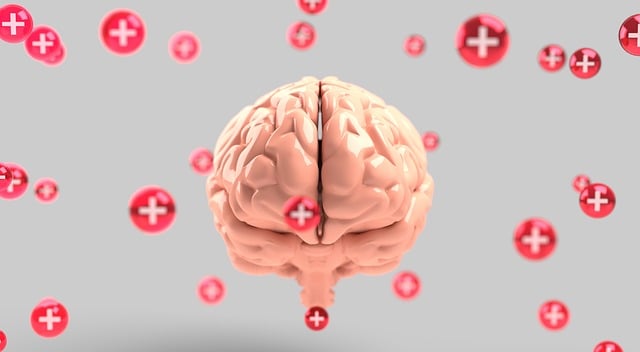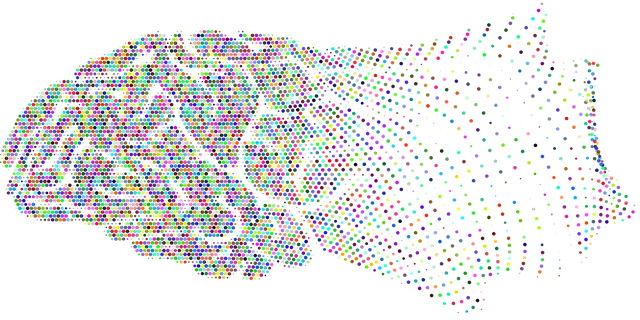Understanding Northglenn postpartum depression (PPD) risk factors is vital for preventing substance abuse. This tailored therapy program combines evidence-based practices, cultural competency training, and coping skills development to address PPD and reduce the reliance on substances. By empowering new mothers with effective tools and support, it fosters mental wellness and prevents addiction. The program, coupled with the Mental Wellness Podcast Series, offers a comprehensive, holistic approach to long-term recovery by addressing physical addiction and underlying mental health or trauma issues.
Substance abuse poses significant risks, but proactive strategies can mitigate these dangers. This article explores comprehensive approaches to risk reduction, focusing on identifying key factors that contribute to substance abuse and emphasizing the role of specialized treatments like Northglenn Postpartum Depression Therapy in vulnerable populations. We delve into evidence-based strategies for long-term recovery, providing insights for individuals, families, and healthcare professionals seeking to prevent and address substance abuse effectively.
- Understanding Risk Factors for Substance Abuse
- Northglenn Postpartum Depression Therapy: A Key to Risk Reduction
- Implementing Effective Strategies for Long-Term Recovery
Understanding Risk Factors for Substance Abuse

Understanding the risk factors associated with substance abuse is a crucial step in developing effective prevention strategies. Several elements contribute to an individual’s vulnerability to addiction, and recognizing these can help create targeted interventions. For instance, Northglenn residents facing postpartum depression may be at a higher risk due to the emotional and physical changes during pregnancy and after childbirth. This period often brings significant life transitions, increased stress, and potential hormonal shifts, all of which can exacerbate existing mental health challenges.
Additionally, low self-esteem, trauma, or a lack of social support can significantly elevate the chances of substance abuse. The development of mental wellness coaching programs and trauma support services tailored to these risk factors is essential in empowering individuals to make healthier choices. These initiatives aim to foster resilience, improve coping mechanisms, and provide alternative avenues for stress relief and emotional well-being, thereby reducing the likelihood of turning to substances as a means of coping.
Northglenn Postpartum Depression Therapy: A Key to Risk Reduction

In the context of substance abuse risk reduction, Northglenn Postpartum Depression Therapy emerges as a vital tool for addressing an often overlooked issue among new mothers. Postpartum depression (PPD) is a complex condition that can significantly increase the likelihood of substance misuse if left untreated. This therapy offers a tailored approach to supporting women during this critical period, focusing on both mental health and substance abuse prevention.
The integration of positive thinking techniques, alongside healthcare provider cultural competency training and coping skills development, forms a comprehensive strategy within Northglenn Postpartum Depression Therapy. By equipping mothers with effective coping mechanisms and fostering an environment that understands the unique challenges they face, this therapy aims to break the cycle of depression and substance abuse. It plays a crucial role in promoting overall well-being and reducing risks associated with substance misuse among new mothers.
Implementing Effective Strategies for Long-Term Recovery

For individuals committed to long-term recovery from substance abuse, implementing effective strategies is essential. Northglenn Postpartum Depression Therapy offers a tailored approach, combining evidence-based practices with compassionate support. This comprehensive therapy not only addresses the physical aspects of addiction but also delves into the root causes, such as underlying mental health issues or past traumas, which often contribute to substance abuse. By fostering inner strength development and providing anxiety relief through various techniques, this therapeutic model empowers individuals to maintain sobriety and enhance their overall mental wellness.
In addition to individual therapy sessions, engaging in a Mental Wellness Podcast Series Production can be immensely beneficial. These podcasts often provide valuable insights, personal stories, and expert advice related to addiction recovery, self-care, and maintaining mental balance. Regularly incorporating these educational resources into one’s routine can reinforce the strategies learned during therapy and inspire continued progress. Ultimately, combining professional therapy with accessible media allows for a holistic approach to recovery, ensuring individuals have the tools and resources needed for lasting success.
Substance abuse is a complex issue, but with a comprehensive understanding of its risk factors and effective strategies in place, recovery is achievable. By addressing specific concerns like postpartum depression in Northglenn, we can significantly reduce the likelihood of substance misuse. Implementing long-term recovery plans that include therapy and support networks proves vital for maintaining sobriety. The combination of recognizing risk factors, utilizing specialized treatments such as Northglenn Postpartum Depression Therapy, and adopting proactive strategies ensures a safer and healthier future for those struggling with substance abuse.














